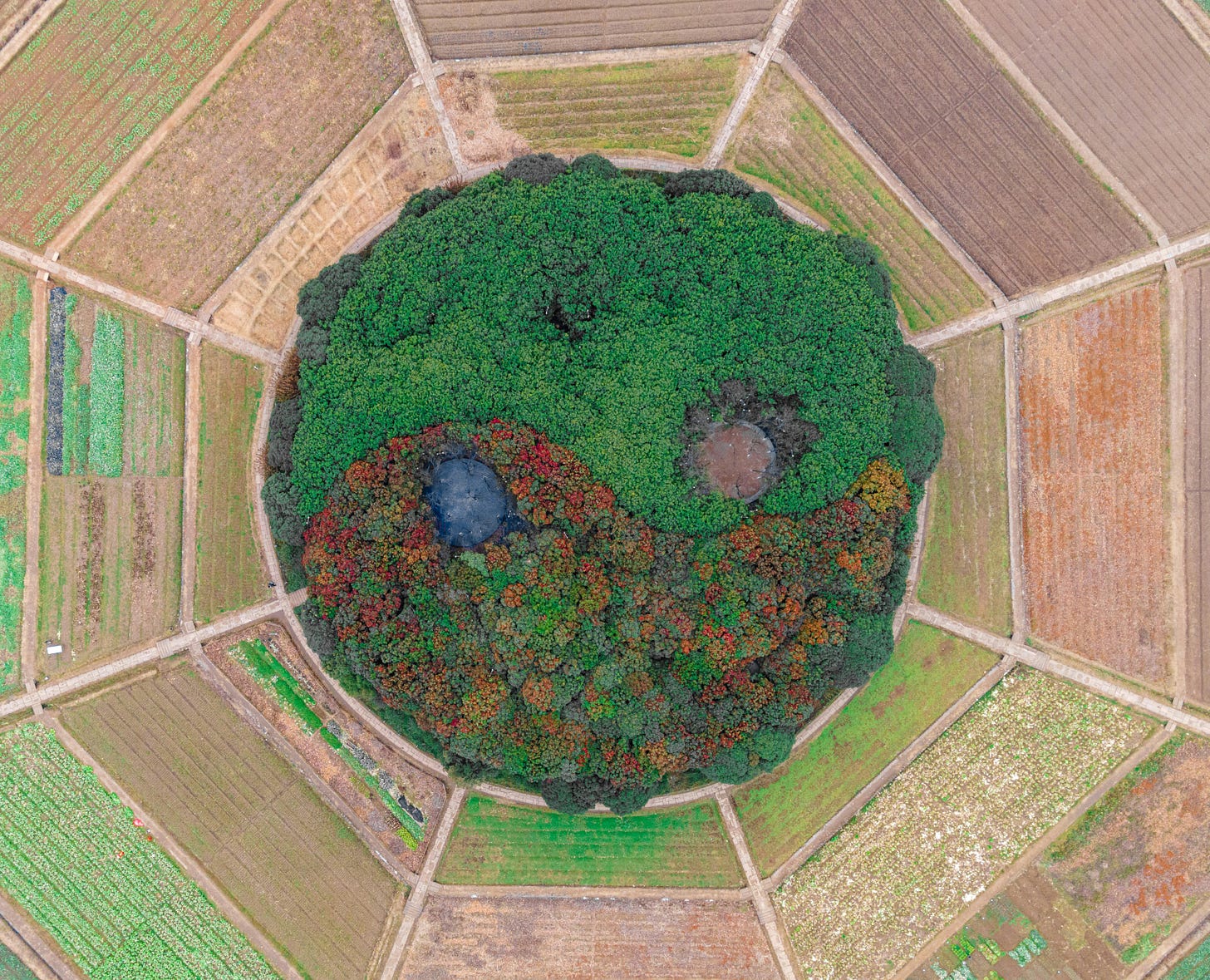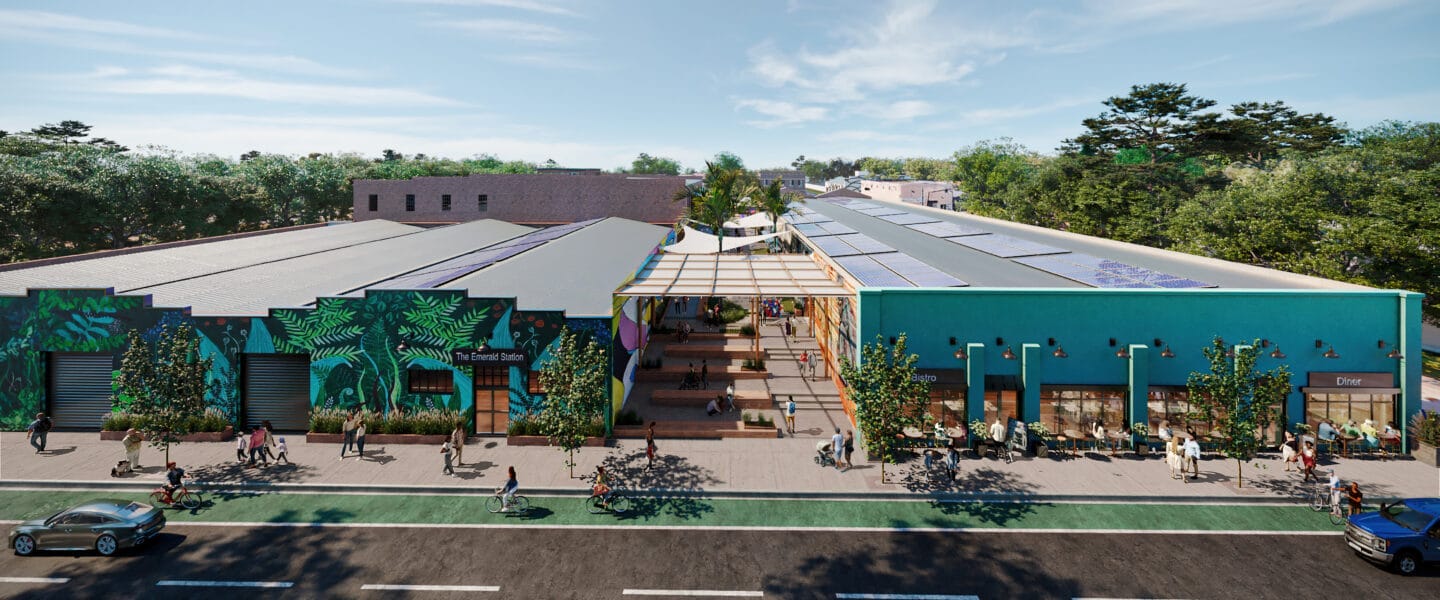“If you want to lead the people, you must learn how to follow them.” ~ Lao Tzu - Tao Te Ching
Six years ago, we dared to imagine what felt like a sci-fi future: decentralized governance over land, tokenized equity in neighborhoods, and community-owned infrastructure—all rooted in the promise of blockchain. We called it the PHXJAX Token—a visionary effort to democratize ownership in the Phoenix Arts & Innovation District of Jacksonville, Florida. It was Future of Cities’ first attempt to tokenize a neighborhood and give everyday people—not just accredited investors—a real stake in their neighborhood through the built environment. In 2022, after much private investment, our vision ran into a limiting reality —-- the regulatory landscape simply wasn’t ready.
Over the last few months we’ve been hearing the conversation coming back into the zeitgeist for the future of real estate once more - this time as it specifically pertains to what some are calling Opportunity Zones 2.0. Despite building the digital token back in 2022, the idea of using blockchain to distribute real-world assets like real estate was still too far ahead of existing securities laws. Additionally, the Opportunity Zone (OZ) policy lacked clarity around tokenization and bifurcated ownership structures—where land and development rights are held separately to maximize accessibility—weren’t legally recognized.
A DAO Isn’t Just a Digital Experiment—It’s a District in the Making
As a governance vehicle, a DAO allows for a transparent, blockchain-native system that enables shared decision-making, pooled resources, and co-ownership. In the urban cores across the country (and the world), like in Jacksonville or Miami, DAO-powered districts could become the future of urban development—especially when paired with legal tools that enable bifurcated ownership, tax credits, and community equity stakes. But we will need legislative reform to get there.
Lessons from the PHX Token Prototype
Our early attempts to tokenize the Phoenix Arts & Innovation District was aimed at building a new model for what blockchain-based regenerative development might look like:
NFT-based land titles to secure home ownership in historically disenfranchised areas
Fractional real estate tokens to enable micro-investment from residents
Community DAOs that let neighborhoods vote on infrastructure, design, and budgets
A digital twin metaverse anchored in local culture, identity, and commerce
We imagined a world where blockchain and urbanism could converge. And while the PHXJAX token never launched due to legal constraints, it began to clarify what steps we need to take together next.
Why States Must Act Now
Currently, only a few states—Wyoming, Tennessee, and Utah—recognize DAOs as legal entities. But to unlock their full potential in physical spaces, we need DAOs to be able to own and govern real-world assets. That means passing laws to:
Enable bifurcated ownership models (e.g. land trusts + tokenized development rights)
Recognize DAOs as legitimate community governance structures
Clarify how blockchain-enabled securities comply with tax-advantaged structures like Opportunity Zones
With the right policy frameworks, DAOs could become community land banks, micro-REITs, local business incubators, and participatory zoning boards—all rolled into one.
Where Blockchain Meets Regeneration
Here’s how we still see the opportunities unfolding:
Land NFTs = Title Security - Secure, immutable property rights for families in legacy neighborhoods.
Tokenized Affordable Housing = Community Equity - Residents and mission-aligned investors fund new housing without losing affordability.
DAO Dashboards = Participatory Planning - Budgets, votes, and proposals in real-time, accessible to every resident.
The Metaverse as a Civic Layer - An interactive, digital twin of the neighborhood to visualize impact, engage youth, support resiliency planning and drive global support. (Like what the Department of Economic Innovation & Development is doing here in Miami, an initiative being led by Department Head Keith Carswell).
The Bigger Picture: From Private Gain to Collective Prosperity
Opportunity Zones were supposed to catalyze local investment. With the right legal frameworks and blockchain tools, OZs can be reimagined:
DAO-enabled QOZ Funds that reinvest returns into the community
Tokenized returns for local residents, workers and creators
Climate-resilient development with built-in community feedback loops
It is a very exciting time in the regenerative placemaking and development world, and by stacking these innovative decentralized technologies with incentives like OppZones 2.0, tokenized real estate, crowdfunding and blended finance tools, we can begin to really co-create equity and abundance in underserved communities across America and beyond.
The Way of the DAO
As we begin to revisit our DAO work in 2025, it’s not to relive a missed opportunity but to accelerate its movement forward. With advances in Web3 infrastructure, more interoperable platforms, and state-level legislation in progress, the conditions are aligning for DAOs to be customized and standardized for districts to move from concept to code to community.
For me, it’s all about stacking functions and aligning incentives to generate win-win-win outcomes — for the community, the city, and the environment. By combining regenerative placemaking with tools like expanded Opportunity Zones, we can open the door for both 1099 and W-2 workers to invest post-tax in district revitalization, giving everyday earners access to the same tax advantages typically reserved for wealthy, accredited investors. When paired with DAO structures, this approach has the potential to drive equity, especially in underserved communities, while aligning stakeholder interests toward shared, regenerative outcomes.
Learn more about the opportunities at the Phoenix Arts & Innovation District
The Phoenix Arts & Innovation District is more than a destination — it’s an investment in the future of community, culture, and technology. As a transformative 8.5-acre urban redevelopment project in Jacksonville’s historic North Springfield neighborhood—an opportunity zone poised for long-term growth powered by Future of Cities — this regenerative placemaking initiative is designed to unlock real estate value while advancing sustainable development, mixed-use affordable housing, and inclusive economic growth. Through public-private partnerships, impact-aligned capital, and a curated network of creatives and change-makers, we are building a district where the future of cities comes to life. With opportunities for a DAO framework to be prototyped here, we are inviting visionary & values-aligned investors to join us in shaping a new model of ownership, influence, and return.






This is absolutely remarkable.
The possibility of establishing an ordinance that engages everyone involved is an exciting thought. I have been on a project with this vision in mind also. Let’s make it a reality!